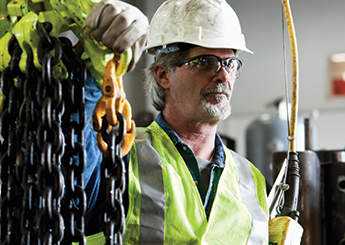STOP WORK AUTHORITY
A new job can seem a bit overwhelming, and it’s common for a recent hire to feel uncomfortable. That discomfort may prevent the worker from speaking up about a potentially unsafe environment.
Experienced employees, on the other hand, may feel so comfortable on the job that they are willing to take certain risks – or may not even recognize that certain situations are dangerous – according to Eddie Greer, director of business development for the Champaign, IL-based Board of Certified Safety Professionals.
Regardless of workers’ experience level, Greer and other experts recommend that employers implement stop-work authority. SWA is a policy that empowers all workers to shut down operations if a hazardous condition exists.
“If we make stop-work authority part of the culture, and they did it every time there’s an issue, then a lot of the fatalities and injuries would go away,” Greer said.
Beyond legal rights
Under federal law, employers must provide employees with a safe and healthful workplace free of recognized hazards. Workers have the right to refuse to perform dangerous work and, if they do so, are protected against employer retaliation. But as with many aspects of workplace safety, experts advise going beyond the letter of the law when it comes to SWA.
For example, although workers are allowed to refuse work assigned to them, they are not granted the same protections for stopping the work of others. Any effective SWA policy needs to allow employees to stop unsafe work regardless of who is performing it, according to Eric Bertolet, corporate safety manager for Baton Rouge, LA-based TOPCOR Companies. “If you see it, you own it,” Bertolet said. In addition, employers have to buy in and positively promote an SWA policy, Bertolet said. This is where some policies may fall flat…. (Read more at safetyandhealthmagazine.com)
Kyle Morrison


